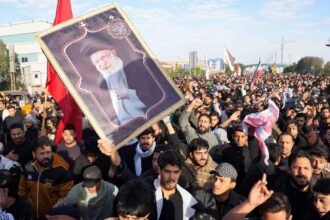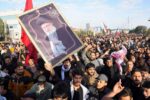A yet another example has surfaced of how the Congress-led UPA government operated under the shadow of foreign influence — and this time, it comes straight from a statement by senior Congress leader and former Union Home Minister P. Chidambaram.
After the 26/11 attacks — one of the deadliest terrorist strikes on India — the entire nation demanded a strong response against Pakistan. Yet, the UPA government remained silent. Why? Because the United States had made it clear — “Do not act.” And the Congress, under Manmohan Singh and Sonia Gandhi, followed that directive.
Today, however, the same Congress hypocritically criticizes Prime Minister Narendra Modi’s government, alleging that US President Donald Trump influenced the ceasefire during Operation Sindoor.
In other words, when they themselves followed America’s lead, they stayed silent — and now they point fingers at a government that stands firmly for India!
During a recent interview, former Union Home Minister P. Chidambaram admitted that the UPA government decided against military action against Pakistan after the 26/11 Mumbai attacks due to intense international pressure and advice from the Ministry of External Affairs.
Chidambaram acknowledged that while thoughts of retaliation did cross his mind, the government ultimately chose not to take military action.
This raises pressing questions: Should India’s right to defend itself and seek justice for attacks on its soil be decided in the offices of Washington, D.C.? And Condoleezza Rice — the US Secretary of State at the time — who exactly was she to dictate whether India could retaliate against terrorists operating from Pakistan?
It also raises a broader concern: Has Congress, in its decades-long tenure, consistently sought US approval for India’s internal affairs? Possibly — especially given that Rahul Gandhi himself in 2023, during a London visit, encouraged foreign intervention in India’s domestic matters.
Reports have also noted that during the UPA regime, Petroleum Minister Mani Shankar Aiyar was removed from the cabinet under US pressure — another instance showing external influence over Congress decision-making.
A party that ruled India for decades — whose hands were truly behind its decisions? How can the public trust a party whose policies were dictated by foreign powers, even when it came to defending the nation?
Adding insult to injury, Chidambaram also partially blamed the Ministry of External Affairs, headed by Pranab Mukherjee, for blocking retaliation. It’s widely known that P Chidambaram and Pranab Mukherjee did not share a cordial personal relationship. Some media reports even allege that in 2011, devices resembling bugs were found in Mukherjee’s North Block office, supposedly installed under Chidambaram’s directive, possibly to monitor him due to internal tensions in the party over cases like Hasan Ali and the 2G spectrum scandal.
Now, decades later, P Chidambaram has disclosed the 26/11 decisions while partially blaming the External Affairs Ministry — conveniently knowing that Pranab Mukherjee is no longer alive to confirm or deny the claims.
Chidambaram further mentioned that other “important people” were consulted regarding US pressure. Who could these have been? Of course, none other than remote-controller Sonia Gandhi herself.
In fact, in a 2019 interview, Manmohan Singh himself admitted that after 26/11, the UPA government considered military action against Pakistan but chose not to act. Instead, India pursued diplomatic isolation of Pakistan, leveraging international pressure to counter terrorism.
This clearly shows how Prime Minister Manmohan Singh, under Sonia Gandhi’s guidance, was used to carry out the party’s personal agenda — even at the cost of India’s sovereignty.
Compare that to today: PM Modi and his government never seek permission from any foreign power before defending India. During Operation Sindoor, Modi made it clear that there was no discussion with US President Donald Trump, and India’s decisions remain fully independent.
Yet, even now, Congress leaders like Supriya Shrinate, Pawan Khera, and Jairam Ramesh exploit media channels to question US influence in India, while their own party historically relied heavily on external powers for decision-making. They have even questioned India’s counter-terror operations in Pakistan, including the 2016 Uri attack, 2019 Pulwama attack, Balakot airstrike, and the recent Operation Sindoor.
The contrast is stark: For Congress, India’s sovereignty was always negotiable under foreign pressure. For Modi’s government, India’s security comes first — regardless of what the world says.
The story of Congress after 26/11 was silence and helplessness. The story of Modi’s government after Pulwama and Sindoor is action and victory.
Now, it’s up to the people: Will India ever elect a party again that placed foreign interests above national sovereignty?









